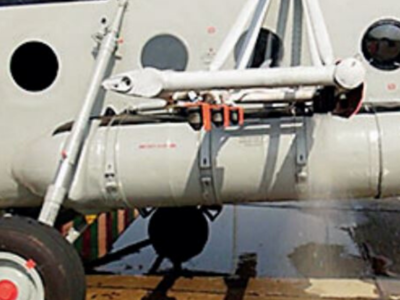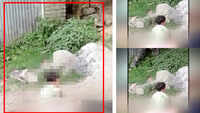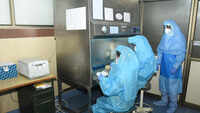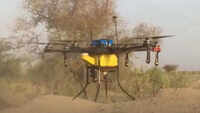
JAISALMER: The Indian Air Force has developed indigenous air-borne locust control system and helicopter MI-17 will play an important role in it. It will operate in locust-affected districts in Rajasthan and other parts of the country in upcoming days.
The ministry of agriculture signed a contract with M/s Micron, UK to modify two MI-17 helicopters for spraying atomized pesticide to arrest locust breeding in May this year but due to Covid-19 pandemic, the firm would be able to manufacture and supply the modification kit to IAF only from September 2020 onwards, for system integration and testing.
IAF spokesperson said, “In view of the envisaged delay in provisioning of modification kits by M/s Micron, the Indian Air Force tasked No 3 Base Repair Depot located at Chandigarh to undertake the challenging task of indigenously designing and developing an Airborne Locust Control System (ALCS) for MI-17 helicopters. Using all indigenous components, the atomized airborne spraying of pesticide has been successfully achieved in air through a configuration of nozzles mounted both sides on external trusses of a MI-17 helicopter.”
The nozzles used for the purpose are a mix of commercially available nozzles as well as the nozzles developed by CSIO, Chandigarh. The pesticide Malathion, in appropriate concentration, would be filled in the internal auxiliary tank of 800-litre capacity fitted inside the helicopter and pumped into the nozzles by using an electrical pump as well as compressed air, achieving nearly 40 minutes of spaying duration in the infected zone, covering an area of approximately 750 hectare in each mission.
The ministry of agriculture signed a contract with M/s Micron, UK to modify two MI-17 helicopters for spraying atomized pesticide to arrest locust breeding in May this year but due to Covid-19 pandemic, the firm would be able to manufacture and supply the modification kit to IAF only from September 2020 onwards, for system integration and testing.
IAF spokesperson said, “In view of the envisaged delay in provisioning of modification kits by M/s Micron, the Indian Air Force tasked No 3 Base Repair Depot located at Chandigarh to undertake the challenging task of indigenously designing and developing an Airborne Locust Control System (ALCS) for MI-17 helicopters. Using all indigenous components, the atomized airborne spraying of pesticide has been successfully achieved in air through a configuration of nozzles mounted both sides on external trusses of a MI-17 helicopter.”
The nozzles used for the purpose are a mix of commercially available nozzles as well as the nozzles developed by CSIO, Chandigarh. The pesticide Malathion, in appropriate concentration, would be filled in the internal auxiliary tank of 800-litre capacity fitted inside the helicopter and pumped into the nozzles by using an electrical pump as well as compressed air, achieving nearly 40 minutes of spaying duration in the infected zone, covering an area of approximately 750 hectare in each mission.

Coronavirus outbreak
Trending Topics
LATEST VIDEOS
City
 Four officers arrested in Tuticorin custodial death case
Four officers arrested in Tuticorin custodial death case  Heartbreaking: Child weeps over body of grandfather killed in cross-firing in Kashmir
Heartbreaking: Child weeps over body of grandfather killed in cross-firing in Kashmir  Blast in NLC thermal power station in Tamil Nadu’s Neyveli, six workers killed, several injured
Blast in NLC thermal power station in Tamil Nadu’s Neyveli, six workers killed, several injured  Why Bengaluru’s lauded model to fight Covid-19 is suddenly unravelling
Why Bengaluru’s lauded model to fight Covid-19 is suddenly unravelling
More from TOI
Navbharat Times
Featured Today in Travel
Quick Links
Kerala Coronavirus Helpline NumberHaryana Coronavirus Helpline NumberUP Coronavirus Helpline NumberBareilly NewsBhopal NewsCoronavirus in DelhiCoronavirus in HyderabadCoronavirus in IndiaCoronavirus symptomsCoronavirusRajasthan Coronavirus Helpline NumberAditya ThackerayShiv SenaFire in MumbaiAP Coronavirus Helpline NumberArvind KejriwalJammu Kashmir Coronavirus Helpline NumberSrinagar encounter
Get the app





